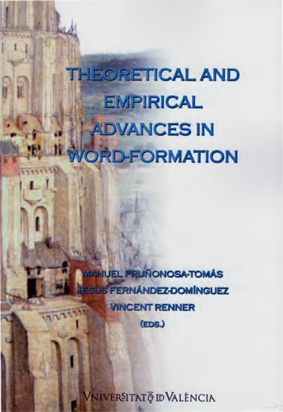The ludic aspect of lexical inventiveness
DOI:
https://doi.org/10.7203/qfilologia.18.3281Paraules clau:
lexical inventiveness, ludicity, nonce formations Resum
Resum
In this paper we argue that coining new words is inherently ludic. Wehypothesize that naming (the onomasiological part of the creation of words)
functions as a modern form of aporia (the riddle). We propose to interpret nonce
formations as the initial stage of any new word both as a temporal and as a
spatial notion. Once used in communicative interaction, a word is launched on
its paths of socialization, instantiated by institutionalization and lexicalization.
As there are no grounds for a sharp distinction between ‘ludic’ and ‘ordinary’
words, we postulate ludicity as a third dimension of socialization for which
each word is characterized
 Descàrregues
Descàrregues
Descàrregues
Com citar
-
Resum524
-
PDF 123
-
PDF (Español)154
-
PDF123
Número
Secció
Llicència
 Este obra está bajo una licencia de Creative Commons Reconocimiento-NoComercial-SinObraDerivada 4.0 Internacional.
Este obra está bajo una licencia de Creative Commons Reconocimiento-NoComercial-SinObraDerivada 4.0 Internacional.
Tots els documents inclosos a OJS són d'accés lliure i propietat dels seus autors i/o institucions editores, i per tant, qualsevol acte de reproducció, comercialització, comunicació pública o transformació total o parcial necessita el consentiment exprés i escrit d'aquests.
Authors who publish with this journal agree to the following terms:
- Authors retain copyright and grant the journal right of first publication with the work simultaneously licensed under a Creative Commons Attribution License that allows others to share the work with an acknowledgement of the work's authorship and initial publication in this journal.
- Authors are able to enter into separate, additional contractual arrangements for the non-exclusive distribution of the journal's published version of the work (e.g., post it to an institutional repository or publish it in a book), with an acknowledgement of its initial publication in this journal.
- Authors are permitted and encouraged to post their work online (e.g., in institutional repositories or on their website) prior to and during the submission process, as it can lead to productive exchanges, as well as earlier and greater citation of published work (See The Effect of Open Access).




